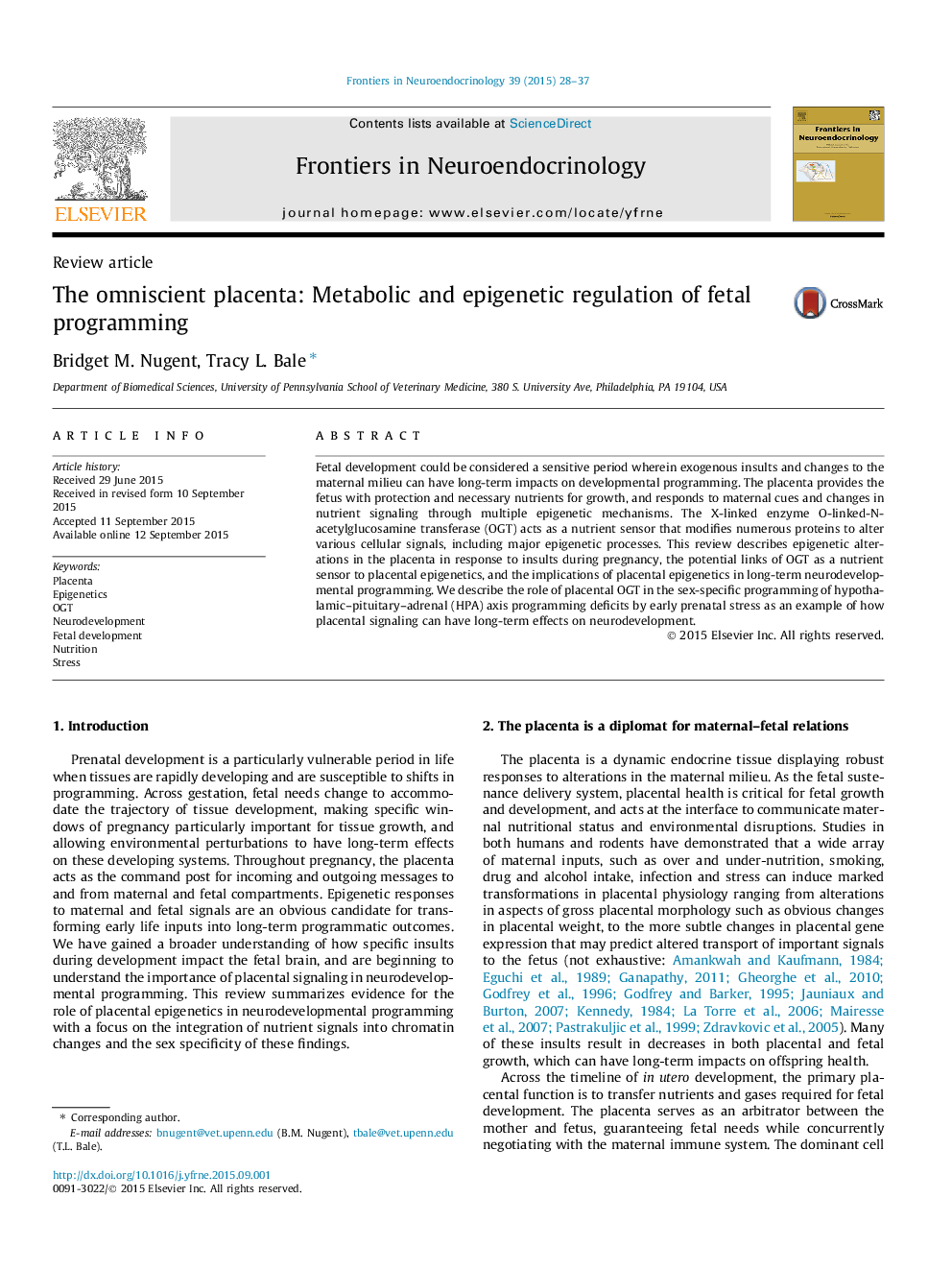| Article ID | Journal | Published Year | Pages | File Type |
|---|---|---|---|---|
| 5900631 | Frontiers in Neuroendocrinology | 2015 | 10 Pages |
â¢The placenta is a critical mediator of maternal and fetal signals.â¢Nutrient cues and maternal insults alter placental function.â¢Alterations in placental epigenetics can have lasting impacts on fetal programming.â¢Fetal sex also influence placental function.â¢O-linked-N-acetylglucosamine transferase (OGT) is a key mediator of sex differences and stress responsivity in the placenta.
Fetal development could be considered a sensitive period wherein exogenous insults and changes to the maternal milieu can have long-term impacts on developmental programming. The placenta provides the fetus with protection and necessary nutrients for growth, and responds to maternal cues and changes in nutrient signaling through multiple epigenetic mechanisms. The X-linked enzyme O-linked-N-acetylglucosamine transferase (OGT) acts as a nutrient sensor that modifies numerous proteins to alter various cellular signals, including major epigenetic processes. This review describes epigenetic alterations in the placenta in response to insults during pregnancy, the potential links of OGT as a nutrient sensor to placental epigenetics, and the implications of placental epigenetics in long-term neurodevelopmental programming. We describe the role of placental OGT in the sex-specific programming of hypothalamic-pituitary-adrenal (HPA) axis programming deficits by early prenatal stress as an example of how placental signaling can have long-term effects on neurodevelopment.
